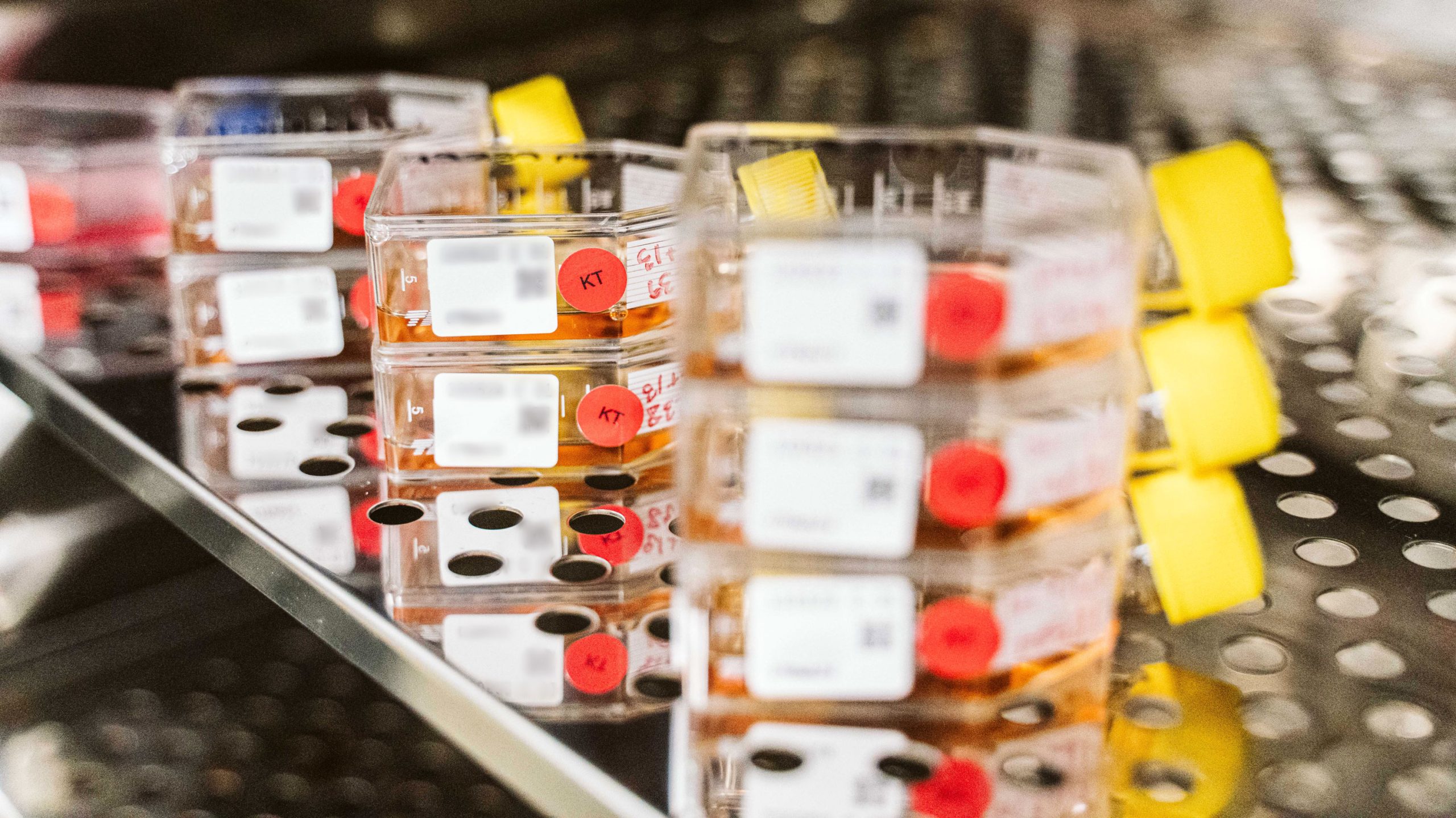Glossary
Below is a listing of terms and definitions most commonly used in our chromosome analysis reports.
add: Additional material of unknown origin attached to a chromosome region or band.
analyzed: Cells in which the chromosomes are compared band by band to their homologues. This can be done in metaphase or in a karyogram and aids in the detection of subtle structural abnormalities.
clonal:
- Two or more cells with the same extra chromosome.
- Three or more cells with the same missing chromosome.
- Two or more cells with the same structural rearrangement.
counted: All cells are counted to confirm they are a normal diploid number of 46 (in humans) and that there are two of each chromosome present. We can also spot structural abnormalities while counting.
cp or composite:
- Results based on consistent abnormalities between cells in culture.
- The total number of cells in which the clonal changes were observed is given in square brackets.
del or deletion: Loss of a chromosome segment.
- Terminal – the distal side of a break is lost
- Interstitial – created by two breaks, where the two broken edges rejoin and the intervening, acentric segment is lost.
der or derivative: Structurally rearranged chromosome generated either by a rearrangement involving two or more chromosomes or by multiple aberrations within a single chromosome.
dic or dicentric: A chromosome that contains two centromeres.
dup or duplication: Gain of a chromosome segment observed at the original chromosome location.
idem (latin word for same): Also used to describe the most basic clone of a tumor cell population.
ins or insertion: Segment of one chromosome has been deleted from its normal location and inserted into another location.
inv or inversion: A single chromosome undergoes breakage and rearrangement within itself, causing a segment of a chromosome to be reversed end to end.
- Pericentric – involves both arms of a chromosome and includes the centromere
- Paracentric – involves only one arm of a chromosome and doe snot include the centromere
i or isochromosome: Unbalanced structural abnormality in which the arms of the abnormal chromosome are mirror images of each other.
karyogrammed: Cells in which the chromosomes are cut apart and arranged with their homologous partner using our imaging software. Karyogrammed cells are also considered to be analyzed as chromosomes are compared band by band to their homologues. The image used on the report is of a single cell from the most representative population.
mar or marker: Structurally abnormal chromosome that cannot be unambiguously identified or characterized by conventional banding cytogenetics.
mosaicism: Presence of two or more cytogenetically distinguishable cell lines.
nonclonal:
- Changes that do not meet the requirements of clonality (typically single-cell findings).
- Can be caused by technical artifact such as chromosomes blowing out from one metaphase spread, and possibly into another.
- Listed on reports to inform that there was a cell with some change seen during analysis but that it did not (and maybe will not) rise to the level of something that will make the karyotype abnormal.
p arm: Chromosome short arm.
q arm: Chromosome long arm.
sl or stemline: The most basic clone of a tumor cell population and is listed first.
sdl or sideline: All additional clones deviating from the stemline.
t or translocation: Rearrangement of segments between chromosomes.
